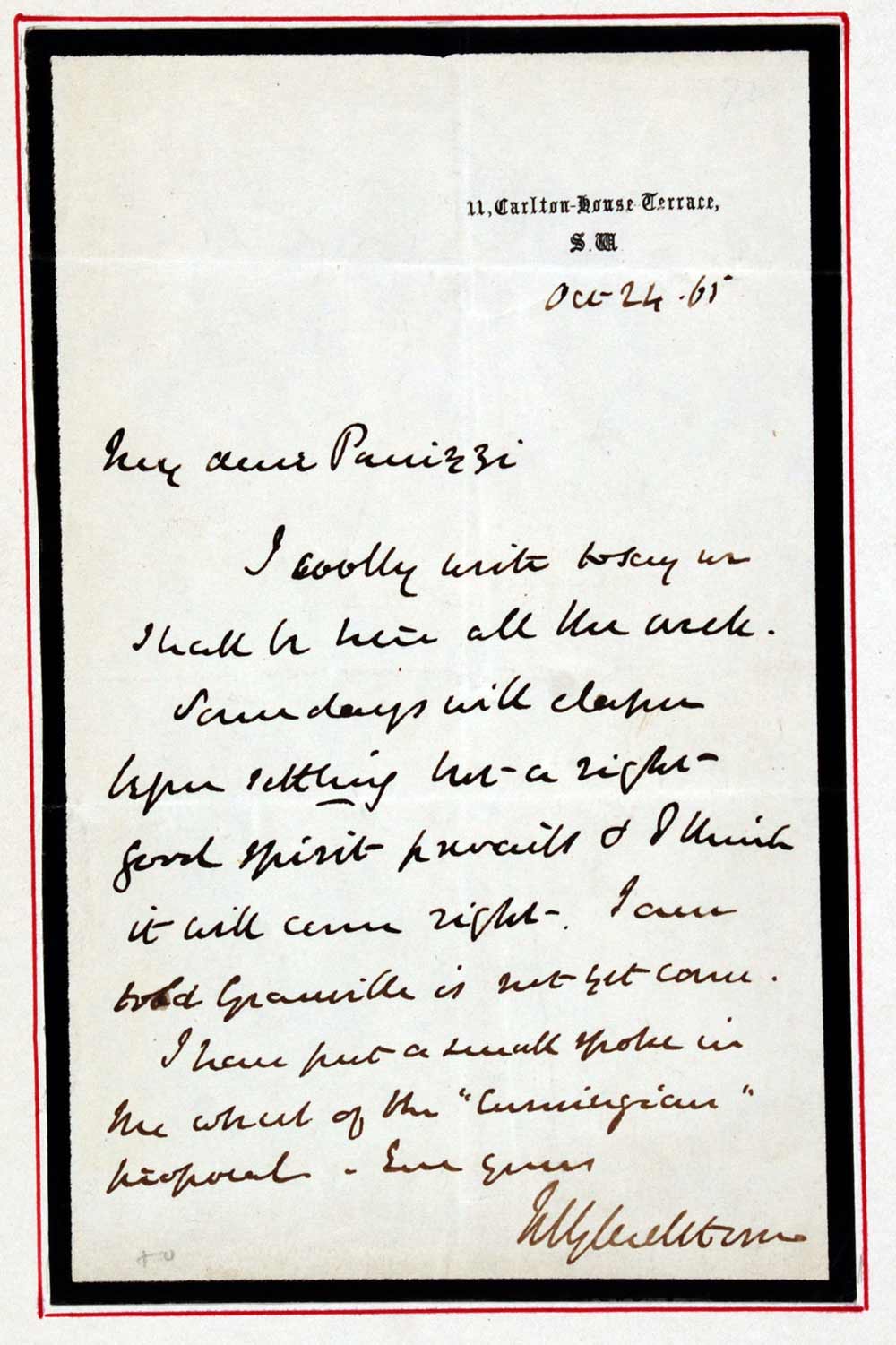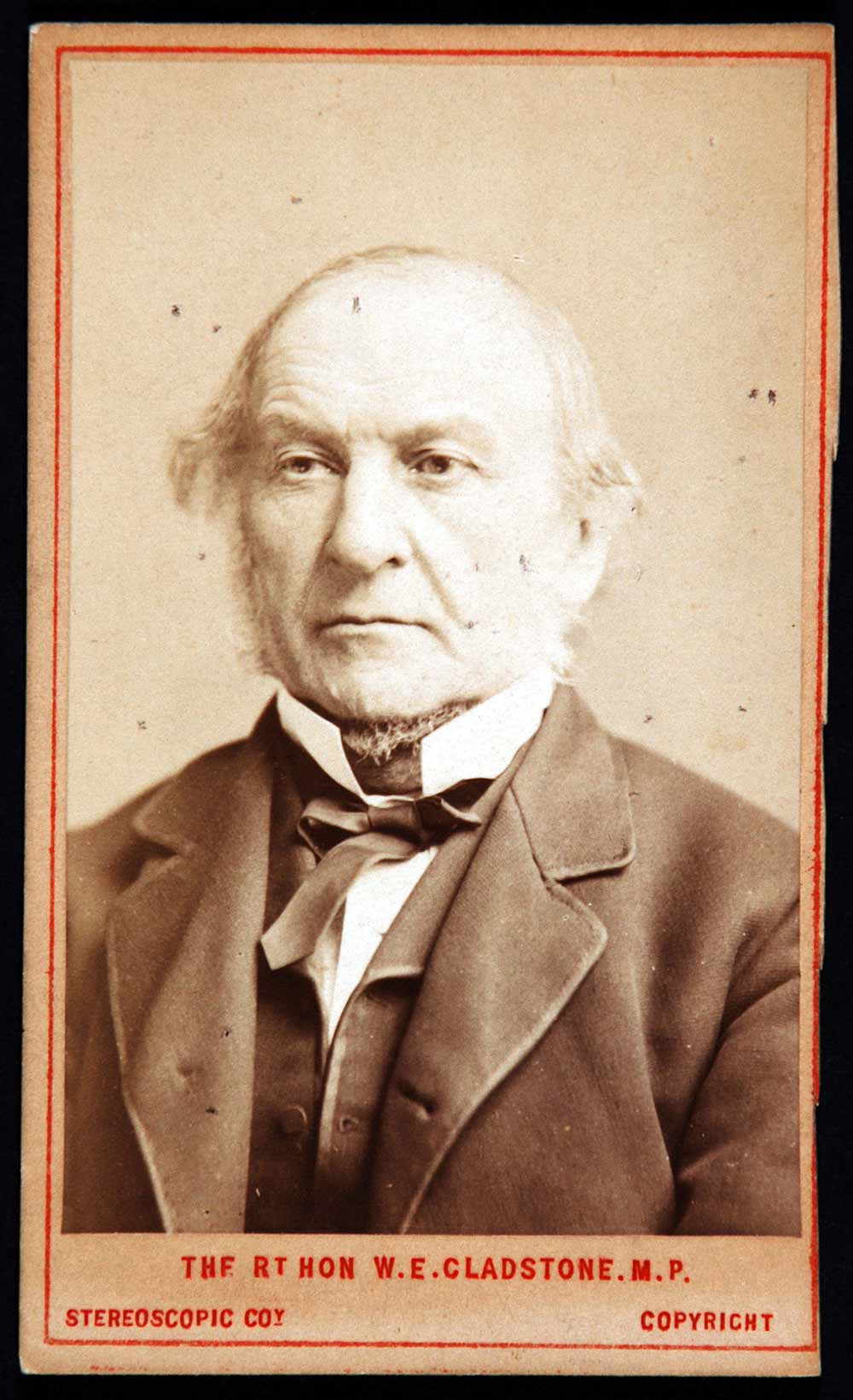
Letter signed. William Ewart Gladstone (1809–1898) to Sir Anthony Panizzi (1797–1879), 11 Carlton-House Terrace, London, 24 October 1865.
Gladstone’s political career lasted more than sixty years. He first entered Parliament in 1832 as a Tory, but later joined the newly formed Liberal Party. Gladstone served as Prime Minister on four separate terms between 1868 and 1894, more than any other person. His ministries saw many reforms and crises alike, such as the introduction of secret voting and repressive measures in Ireland. Famous for his oratory and for his rivalry with Benjamin Disraeli, Gladstone was known by his supporters as ‘The People's William’ or the ‘G.O.M.’ (‘Grand Old Man’).
Gladstone was serving as Chancellor of the Exchequer when this letter was written. The context of the first half of the letter is unclear, but appears to relate to an unresolved issue. ‘Good spirit prevails’, he wrote, ‘& I think it will come right. I am told Granville is not yet come’. ‘Granville’ was the 2nd Earl of Granville, one of Gladstone’s political allies and friends. In the last part of the letter, Gladstone notes that he managed to ‘put a spoke in the wheel’ of a particular proposal, though the title in double quotation marks is as yet unknown.
The recipient of the letter was Anthony Panizzi (1797–1879), the formidable librarian at the British Museum, and a personal friend to Gladstone.

![Two postcards signed. William Ewart Gladstone to [unknown], 26 July 1839, and to the Reverend Frederick Oakeley (1802–1880), 12 November 1874.](https://www.reedgallery.co.nz/__data/assets/image/0007/263932/case23-item2.jpg)
